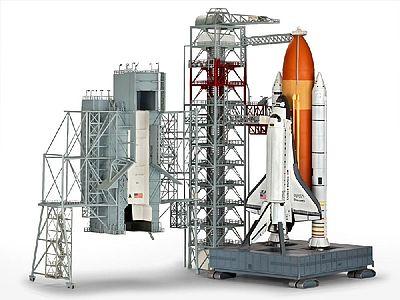Germany has made a significant move to reassert its presence in the space sector, a development that holds promising benefits for Luxembourg’s burgeoning space economy. As Berlin ramps up investments and initiatives aimed at boosting its space capabilities, Luxembourg stands to gain through enhanced collaboration, technology exchange, and economic opportunities. This resurgence underscores a shifting dynamic within Europe’s aerospace landscape, highlighting the growing importance of cross-border partnerships in the race for space innovation.
Germany Reignites Its Space Ambitions with Strategic Investment Initiatives
Germany is making a decisive comeback in the space sector, channeling substantial resources into cutting-edge technology and international partnerships. This renewed focus aims at reestablishing the nation as a prime player in satellite innovation, space exploration, and sustainable orbital infrastructure. Central to this strategy is a diversified investment framework, designed to accelerate research and development in satellite communications, earth observation, and propulsion systems. The German government has earmarked billions in funding, fostering a fertile environment for startups and established aerospace giants alike to spearhead next-generation space solutions.
Luxembourg, with its burgeoning space ecosystem and investor appeal, stands to gain considerably from Germany’s ambitious push. Enhanced collaboration between the two countries is already underway, targeting joint ventures and technology exchanges that promise to strengthen the European space economy. The following table highlights key areas where Germany’s investments align with Luxembourg’s strategic priorities:
| Focus Area | Germany’s Initiative | Luxembourg’s Opportunity |
|---|---|---|
| Satellite Communications | Funding advanced 5G-enabled satellites | Innovation hubs for data services |
| Earth Observation | Investment in climate-monitoring tech | Environmental data analytics |
| Propulsion Technologies | Developing green rocket engines | Testing facilities and manufacturing |
- Joint Research Initiatives: Launching collaborative research programs involving universities and private firms.
- Funding Incentives: Offering grants aimed at fostering innovation across the space value chain.
- Market Expansion: Leveraging Germany’s extensive industrial network to open new market pathways for Luxembourgish companies.
Luxembourg Emerges as a Key Partner Benefiting from Enhanced European Space Collaboration
As Germany ramps up its investments and initiatives in the space sector, Luxembourg has strategically positioned itself as an indispensable ally in this expanding European ecosystem. The Grand Duchy’s cutting-edge infrastructure, combined with its forward-thinking regulatory framework, has attracted significant attention, enabling it to capitalize on the surge of collaborative projects tailored to scientific innovation and commercial space ventures. With Germany’s resurgence fueling increased funding and technology transfers, Luxembourg gains unprecedented access to resources and expertise that accelerate its own ambitions in satellite technology, space mining, and data processing.
Key factors underpinning this burgeoning partnership include:
- Joint Research Programs: Focus on deep space exploration and sustainable satellite communications.
- Shared Infrastructure: Access to German launch facilities paired with Luxembourg-based space data hubs.
- Investment Synergies: Co-financing opportunities attracting private and public stakeholders across Europe.
| Area | Luxembourg’s Role | German Contribution |
|---|---|---|
| Satellite Tech | Innovation & Testing | Manufacturing & Launch |
| Space Mining | Policy & Funding | Research & Development |
| Data Processing | Data Centers | Advanced Algorithms |
Policy Recommendations for Strengthening EU Space Industry Competitiveness and Innovation
To maintain and expand its leadership in the rapidly evolving space sector, the EU must prioritize investment in cutting-edge research and digital infrastructure. Boosting public-private partnerships will be critical to accelerate innovation cycles and translate breakthrough technologies into market-ready solutions. Additionally, fostering a versatile talent pipeline through enhanced STEM education and targeted vocational training will ensure that Europe’s space industry remains competitive in the global arena. Facilitating cross-border collaboration and harmonizing regulatory frameworks can also unlock synergies between member states, enabling shared access to facilities and reducing duplication of efforts.
Equally important is the strategic support for SMEs and startups, which often act as catalysts for disruptive innovation. Implementing agile funding mechanisms and providing tax incentives can empower these smaller players to scale rapidly while driving diversification in space applications-from satellite communications to Earth observation. Below is a summary of key focus areas proposed for future policy action:
- Increased R&D funding: Prioritize emerging technologies such as AI and autonomous systems.
- Regulatory streamlining: Create clearer, more flexible frameworks for space activities.
- Skills development: Launch EU-wide educational initiatives targeting space sector competencies.
- Innovation hubs: Support regional centers to nurture startups and facilitate knowledge exchange.
| Policy Area | Expected Impact | Timeline |
|---|---|---|
| R&D Investment | Accelerate tech breakthroughs | 2024-2027 |
| Regulatory Harmonization | Reduce barriers to market entry | 2024-2025 |
| Skills & Education | Ensure talent availability | 2024-2030 |
| Startup Ecosystem Support | Increase SME innovation | 2024-2026 |
Key Takeaways
As Germany reasserts itself in the race for space innovation, Luxembourg stands to gain significantly from this renewed momentum. The deepening collaboration between the two nations not only promises advancements in technology and industry but also reinforces Europe’s strategic position beyond Earth’s atmosphere. With these developments, Luxembourg’s emerging role as a space hub is further solidified, paving the way for economic growth and increased investment in the years ahead.
















